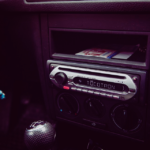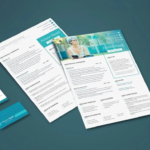In the dynamic and ever-evolving world of the music industry, crafting a resume that strikes the perfect chord is paramount. Just as musicians create symphonies that resonate with audiences, your resume should resonate with potential employers. At online resume writers, we understand the unique blend of artistry and professionalism required to build a compelling resume tailored to the music industry.
In this guide, we’ll unravel the intricacies of constructing a resume that harmonizes your musical journey and career aspirations. Whether you’re an accomplished musician seeking your next gig or someone looking to make their mark in this vibrant industry, join us on a melodious journey to creating a resume that sings your achievements and potential loud and clear. Let’s explore the key elements that will compose your own “Symphony of Success” in the music industry.
Key Elements of a Music Industry Resume
In the orchestration of a compelling music industry resume, certain key elements must resonate to create the desired impact. First and foremost, your resume should embrace clarity. It’s your opportunity to articulate your musical journey and professional story in a way that’s both concise and captivating.
A strong opening statement sets the tempo. Begin by crafting a compelling summary that encapsulates your passion for music and the skills that set you apart. Remember, in the music industry, your unique voice and style are what distinguish you.
As you compose your resume, remember to strike a balance between your musical accomplishments and your professional experience. Highlight relevant gigs, tours, studio work, or collaborations that showcase your expertise.
Additionally, emphasize your educational background in music. Whether you’re classically trained or self-taught, your educational journey plays a pivotal role in your narrative.
Lastly, don’t forget to harmonize your technical skills. Proficiency in software, instruments, sound equipment, or digital audio workstations should find their place in your resume.
Crafting the Perfect Resume for Musicians
Crafting a pitch-perfect resume for musicians requires a keen ear for detail. Your resume should resonate with your unique musical identity while harmonizing with the expectations of potential employers.
Begin by considering your target audience. Who are you trying to impress? Tailor your resume to their expectations, whether you’re seeking a role as a performer, composer, sound engineer, or music educator.
A key aspect of a musician’s resume is the repertoire section. This is your chance to showcase the diverse genres, styles, and pieces you’ve mastered. Think of it as showcasing your musical palette. For each piece, consider providing context or anecdotes to bring your experiences to life.
In addition to highlighting your musical achievements, ensure that your resume reflects your dedication to professionalism. Mention any affiliations with music associations, certifications, or awards that underline your commitment to excellence.
Remember that your resume should not be a solo act; it’s part of a larger ensemble that includes your portfolio and online presence. Align your resume with these other elements to create a cohesive personal brand.
In conclusion, crafting the perfect resume for musicians is akin to composing a masterpiece. It requires a delicate balance between showcasing your musical prowess and demonstrating your professionalism. By harmonizing these elements, you’ll create a resume that resonates with potential employers and captures the essence of your musical journey.
Translating Musical Skills into Marketable Qualities
In the symphony of your career, your musical skills are the instruments, and your resume is the score that brings them to life. But how do you transform your musical talents into marketable qualities that resonate with employers in the music industry?
Consider this: your ability to play an instrument isn’t just about producing beautiful sounds; it’s a testament to your discipline, dedication, and mastery of complex techniques. These are qualities that employers value immensely. Your proficiency in reading sheet music showcases your attention to detail, a crucial trait in an industry where precision matters.
Musicians are also experts in teamwork. Think of your experiences playing in an ensemble or band. You’ve learned to collaborate, synchronize, and communicate effectively with fellow musicians, skills that are highly transferable to many music industry roles.
Creativity is your forte. Composing melodies, arranging harmonies, or improvising during performances all require inventive thinking. In a world where innovation drives success, your creative spirit is a marketable quality that sets you apart.
Adaptability is another key trait you’ve honed as a musician. You’ve learned to adapt to different styles, genres, and audiences. In an ever-changing music industry landscape, your ability to embrace new trends and technologies can be a powerful asset.
Moreover, musicians are no strangers to hard work and perseverance. Countless hours of practice, the pursuit of perfection, and the resilience to face setbacks have sculpted you into a determined individual who can overcome challenges.
By showcasing these qualities on your resume, you’re not just listing skills; you’re presenting a rich tapestry of attributes that make you a valuable asset to any music-related organization.
Resume Design and Aesthetics

Just as a beautifully composed melody can captivate an audience, an aesthetically pleasing resume can engage potential employers. Resume design and aesthetics are the visual notes that accompany your professional narrative.
Begin with a clean and organized layout. Think of it as the sheet music for your career. Use clear headings, consistent fonts, and appropriate spacing to create a visually appealing structure. A cluttered resume can be as jarring as discordant music.
Color can be a powerful tool. Choose a color palette that complements your personal brand and the music industry. Subtle, professional colors can evoke a sense of sophistication, while bold colors may convey creativity and passion.
Consider incorporating visuals strategically. Whether it’s a well-placed musical note or a tasteful border, visuals can add a touch of personality to your resume. Just like an album cover, your resume’s visuals should hint at what’s inside.
Think of your resume as a composition. Begin with a strong opening statement, your “overture,” to draw readers in. Use clear, concise language to describe your experiences, much like musical notation conveys specific instructions to musicians.
Whitespace is your “rest.” Don’t overcrowd your resume with text. Allow whitespace to create a sense of balance and clarity. Remember, a well-designed resume should be easy to read and navigate.
Ultimately, your resume’s design and aesthetics should reflect your unique musical identity while maintaining professionalism. It should be visually appealing without overshadowing the content. Just as a beautifully designed album cover entices listeners, your resume’s visual harmony can leave a lasting impression on potential employers.
Highlighting Relevant Experience
In the journey of building a resume for the music industry, one of the key movements is highlighting relevant experience. Your experience is the melodic thread that weaves through your resume, narrating your story in the industry.
Start by considering the roles, gigs, or projects that align with your career aspirations. These are the experiences that deserve the spotlight. Perhaps you’ve performed in a renowned jazz club, worked as a session musician for a notable artist, or had a transformative role as a music teacher. Each of these experiences has its unique value, and your task is to convey that value effectively.
Remember that it’s not just about listing your experiences; it’s about painting a vivid picture. Describe the context and significance of each experience. How did your role contribute to the overall performance, project, or organization? Use descriptive language to transport the reader into the moment.
Quantify your achievements when possible. Mention the number of concerts performed, the size of the audience, or the impact of your teaching on students. Numbers can provide a powerful crescendo in your resume, demonstrating your tangible contributions.
Furthermore, be sure to emphasize experiences that directly relate to the type of role you’re seeking in the music industry. If you’re aiming for a music production role, highlight your studio work and production credits. If you aspire to be a live performer, focus on your stage experiences and collaborations.
In this movement of your resume composition, your goal is to harmonize your experiences to create a compelling narrative. Your experiences should not just be notes on paper but a symphony of your journey in the music industry.
Building an Impressive Portfolio
In the digital age, a musician’s portfolio is akin to an artist’s gallery. It’s the place where your audience, including potential employers, can experience your work firsthand. Building an impressive portfolio is the grand crescendo of your resume’s symphony.
Begin by selecting the pieces that best represent your musical identity and expertise. These could be recordings, compositions, performances, or arrangements. Each piece in your portfolio should tell a story, capturing the essence of your musical journey.
When adding your pieces to the portfolio, consider providing context. Explain the inspiration behind a composition, the significance of a live performance, or the challenges you overcame during a recording session. By sharing these narratives, you give your portfolio depth and meaning.
Diversify your portfolio to showcase your versatility. Include pieces from various genres or styles that demonstrate your adaptability as a musician. Just as a symphony encompasses a range of movements, your portfolio should showcase the breadth of your capabilities.
Remember that your portfolio isn’t limited to audio or video recordings. You can also include musical scores, arrangements, or compositions you’ve written. These elements can showcase your skills in musical composition and arrangement, adding another layer to your portfolio’s richness.
As you build your portfolio, make it easily accessible online. Create a dedicated website or utilize platforms like SoundCloud or YouTube to host your work. Ensure that your portfolio is well-organized and user-friendly, allowing visitors to explore your musical journey effortlessly.
In the grand finale of your resume’s composition, your portfolio becomes the resounding note that lingers in the minds of potential employers. It’s the proof of your musical prowess, the culmination of your experiences, and the crescendo of your career in the music industry.
Conclusion
In the final movement of our symphony, we’ve explored the art of building a resume for the music industry. Your resume is your overture to the music career of your dreams. By harmonizing your musical journey, skills, and experiences, you can compose a resume that resonates with potential employers. Remember that your unique musical identity is your most powerful instrument in this symphony of success. As you step onto the stage of the music industry, let your resume be the crescendo that announces your arrival.
FAQ
Q1: What if I have limited music industry experience?
A1: Even with limited experience, focus on transferable skills, passion, and education to create a compelling resume.
Q2: How should I format my resume for the music industry?
A2: Use a clean, organized layout with a professional yet visually appealing design.
Q3: Should I include my entire musical repertoire in my resume?
A3: No, focus on relevant pieces and provide context to make them meaningful.
Q4: Is an online portfolio necessary for musicians?
A4: Yes, an online portfolio is a powerful tool to showcase your work; it’s highly recommended.
Q5: How can I tailor my resume for different music industry roles?
A5: Customize your resume for each role by highlighting experiences and skills relevant to that specific position.

